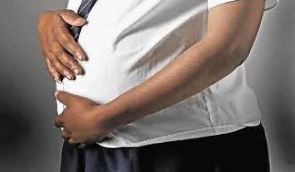Children find themselves in this world through no fault of theirs.
On average, about 45 percent of pregnancies that occur worldwide are unplanned. In the United States of America, for instance, this estimate is as high as 60 percent.
Many children have endured painful rejection into adulthood because they were born at a time when their parents were not ready to shoulder them as a responsibility. Some were delivered at a time when their parents were teenagers or even out of wedlock, which many societies frown upon.
Others have been the object of society’s ridicule for being born without a father to own up to. Some mothers and fathers in this situation also remain bitter towards such children because their life’s trajectory took a nosedive with the occurrence of their birth.
This experience of such children born from unintended pregnancies puts them at risk of poor development and negative cognitive outcomes. The neglect and abuse they face can plunge them into poverty and increase their risk of substance abuse.
Born with disabilities:
Among babies who suffer exclusion are also those born with disabilities. Many suffer discrimination from their kith and kin and are deprived of love and care. They are hardly given a sense of belonging or hope for the future.
To enjoy the basic human rights that these children are entitled to, society must be educated incessantly to make stigmatisation a thing of the past. Globally, it is estimated that nearly 240 million children live with some form of disability, many of whom live in serious deprivation through no fault of theirs.
(United Nations Children’s Fund). Nearly 50 percent of such children feel discriminated against, are more likely to have never attended school, are more likely to consider themselves unhappy, are more likely to be out of school, and are more likely to have frequent symptoms of acute respiratory tract infections as compared to children without disabilities.
To address the unjust pain of exclusion that these children face, it is important to consider their needs through a holistic lens.
Hospitals where they access care and their environments should all be inclusive and accessible. This will allow them to engage easily with opportunities for care and play. There must be a commitment to providing the facilities required for inclusive education.
Families of children living with disabilities must be able to access psychosocial support so they can cope well with their situation.
Sensitised:
Other children should be sensitised to advocate for the eradication of stigma and eradication among their peers so their voices can be heard too.
There is also a need to protect them from abuse, violence, neglect, and exploitation. There should be the opportunity for disability-inclusive support and justice when their rights are violated.
This is in every child’s interest, as robust child protection services invariably benefit all. Adequate social protection that supports individual needs to break the cycle of poverty and make inclusion possible is ideal.
Families with children living with disabilities must receive every kind of support they need to raise their children in the best way they can without compromising their physical and mental well-being.
All children everywhere matter, regardless of the circumstances they were born in. Once they are here, it is everyone’s responsibility to ensure that they are well-integrated into society.
Education, women's empowerment, and advocacy must continue to reduce unintended pregnancies, their associated socioeconomic disadvantages, and problematic parenting.
Opinions of Wednesday, 10 July 2024
Columnist: Nana Esi Gaisie-Tetteh







![NPP Flagbearer, Dr. Mahamudu Bawumia [L] and NDC Flagbearer John Mahama NPP Flagbearer, Dr. Mahamudu Bawumia [L] and NDC Flagbearer John Mahama](https://cdn.ghanaweb.com/imagelib/pics/869/86902869.295.jpg)











